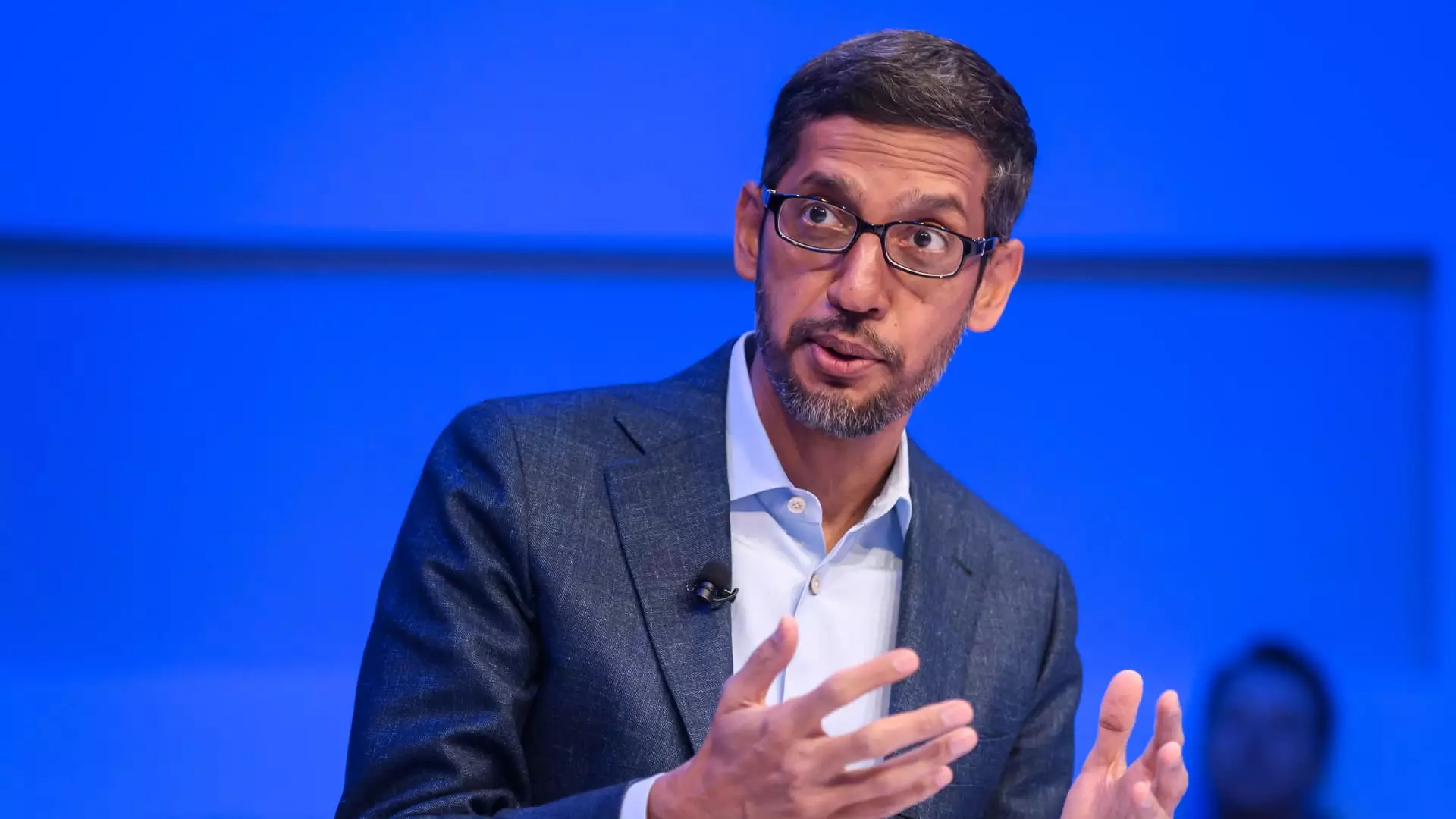In a recent strategic meeting, Google’s CEO Sundar Pichai outlined the complex challenges and opportunities facing the tech giant as it moves into 2025. Employees gathered, some in person and others virtually, to absorb the urgency conveyed by Pichai regarding the trajectory of Google’s AI ambitions. With phrases like “the stakes are high,” Pichai emphasized the critical nature of the year ahead. Indeed, the pressure is on Google to navigate not only the aggressive competition in the AI sector but also increasing regulatory scrutiny that could drastically reshape its operations.
Pichai’s insistence on the “urgency of this moment” is particularly telling. It illustrates a crossroads where innovation must coincide with swift execution. With a tumultuous backdrop that includes landmark legal challenges, tech advancement, and shifting product landscapes, Google is pivoting towards a path that promises to maximize both its technological capabilities and market position.
For Google, the legal landscape is becoming a battleground. A federal judge’s ruling that the company holds an illegal monopoly in the search market signifies deepening regulatory pressure. Furthermore, the Justice Department’s attempts to compel Google to divest its Chrome unit illustrate a growing concern that the company’s vast reach may inhibit market competition. The sentiment is echoed globally, with regulators in the UK voicing similar objections regarding Google’s advertising practices.
Pichai candidly acknowledged the scrutiny that comes with being an industry leader. “It comes with our size and success,” he remarked, indicating that this heightened oversight may serve as both a challenge and a wake-up call for innovation. Leaders of tech firms are often at a disadvantage when attracting public trust, and Google’s corporate narrative must evolve to highlight accountability alongside technological brilliance.
As generative AI rapidly reshapes the digital landscape, new competitors are emerging at a swift pace. Pichai referenced the influence of OpenAI and its flagship model, ChatGPT, which has garnered significant interest from corporate investors and the public alike. Microsoft’s backing of OpenAI, including plans for its own search engine, underscores the competitive race for dominance in AI technologies.
Within this context, Google is focusing heavily on its own AI initiative, dubbed Gemini. The company is not merely attempting to keep up with rivals but aims to establish a preeminent position in the AI ecosystem. Pichai expressed optimism, stating that Gemini could become a standout app that might engage over half a billion users. However, this ambition comes with an acknowledgment that Google needs to address user engagement levels to capture the interest of a rapidly evolving market.
In addressing the employees, Pichai reminded everyone about the company’s historical ethos of agility and scrappiness. Reflecting on the early days of Google, he imparted valuable lessons regarding innovative processes during constrained resource scenarios. This recollection serves as motivation as the company has undergone cost-cutting measures, which included a notable workforce reduction in 2023. As the tech realm becomes more competitive, it is essential for Google to find ways to innovate while maintaining efficiency.
Pichai reassured employees that the focus would remain on enhancing products, not only for current users but also for potentially new demographics. Insights shared by DeepMind co-founder Demis Hassabis about evolving products to meet user expectations further illustrate a commitment to continual improvement. The goal is not merely to keep pace but to set the agenda for the future of AI-powered solutions.
Google’s plans for the immediate future revolve predominantly around scaling the Gemini platform, enhancing user experience, and addressing market competition more robustly. During the meeting, employees participated in demonstrations of novel technologies, including Jules and NotebookLM—tools designed to revolutionize coding and note-taking, respectively. These innovations exemplify the commitment to pragmatic advancements tailored for broader audience needs.
Yet, scaling product offerings remains pivotal. As Pichai noted, understanding how to become best-in-class rather than simply first to market will define Google’s approach moving forward. This focus aligns with the necessity of incidentally navigating an evolving cultural landscape in tech, where consumer expectations and regulatory norms intersect increasingly.
As Google faces significant external challenges in 2025, Pichai’s leadership will be pivotal in charting a pragmatic and dynamic course. The need for urgency is palpable, signaling that while technological advancement is crucial, so is the underlying cultural shift that adapts to external pressures. With plans to overcome obstacles through innovation, efficiency, and strategic foresight, Google’s commitment to shaping the future of technology appears steadfast. The road ahead may be fraught with potential pitfalls, but also rich with possibility, leaving all eyes on how Google will navigate this pivotal moment in its storied legacy.


Leave a Reply